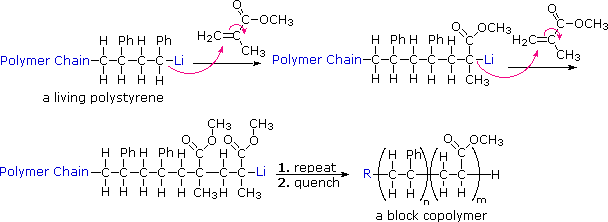Polymers in Healthcare: Improving Clinical Devices and Treatments
Polymers in Healthcare: Improving Clinical Devices and Treatments
Blog Article
Checking Out the Varied Applications and Advantages of Polymers in Different Industries
Polymers, with their diverse variety of buildings and capabilities, have actually ended up being vital in various sectors, each gaining unique benefits from their application. From improving safety and efficiency in the vehicle industry to revolutionizing medical tools in the healthcare sector, polymers play an essential duty.
Automotive Field Applications
Polymers play an essential role in boosting the efficiency and sturdiness of different elements within the automotive market. These versatile materials are thoroughly used in the production of different parts, ranging from interior elements to under-the-hood applications. One noticeable usage of polymers in the automotive sector is in the manufacturing of light-weight components. By replacing conventional steel get rid of polymer-based options, vehicles can attain better fuel performance without endangering on strength or safety.

Health Care Industry Benefits
In different healthcare applications, the benefits of utilizing polymers are commonly acknowledged for their varied series of helpful residential properties. Polymers play an important duty in the healthcare industry because of their flexibility, biocompatibility, and cost-effectiveness. One of the key benefits of polymers in medical care is their capacity to be tailored to particular demands, such as flexibility, durability, and biodegradability, making them optimal for a vast array of medical applications.
Polymer-based materials are thoroughly made use of in medical gadgets, such as catheters, implants, prosthetics, and medicine delivery systems, because of their biocompatibility and capacity to simulate natural tissues. These products can decrease the danger of sensitive responses or denials, boosting individual safety and results. Additionally, polymers are light-weight, making them suitable for wearable medical devices and making sure person comfort.
In addition, polymers make it possible for the advancement of ingenious treatment methods, such as hydrogels for cells engineering and nanocomposites for targeted medication shipment. Their ease of processing and sterilization makes them essential for preserving high criteria of health in healthcare setups. In general, the varied advantages of polymers add significantly to developments in medical modern technology and patient treatment.
Ecological Advantages of Polymers

In addition, polymers can contribute to energy financial savings as a result of their light-weight nature. In industries such as transport, light-weight polymer materials can my review here help decrease gas consumption and greenhouse gas emissions. Additionally, polymers can allow the growth of energy-efficient products such as insulation materials that improve energy preservation in buildings.
Furthermore, polymers play a crucial role in lowering water air pollution. For instance, using polymer-based purification systems can efficiently get rid of contaminants and impurities from wastewater, guarding water sources and communities. Overall, the ecological advantages of polymers make them important properties in promoting sustainability and environment-friendly practices throughout different industries.
Polymers in Electronics and Innovation
Taking into consideration the boosting need for ingenious and sustainable solutions in contemporary sectors, the integration of innovative polymer modern technologies in the world of electronic devices and modern technology has actually arised as a pivotal strategy for driving efficiency and efficiency. Polymers have revolutionized the electronics useful content market by allowing the manufacturing of lighter, extra versatile, and sturdy digital tools. From mobile phones to medical tools, polymers play a critical duty in boosting item layout and capability.
One considerable benefit of polymers in electronics is their insulating buildings, which help protect delicate digital parts from ecological variables and electrical interference. In addition, polymers are necessary in the advancement of flexible display screens, wearable technology, and printed electronic devices, providing endless opportunities for producing wise and interconnected tools.
Furthermore, using polymers in digital product packaging has caused developments in miniaturization and thermal monitoring, enhancing the total performance and integrity of digital systems. As technology proceeds to develop, the adaptability and adaptability of polymers will unquestionably drive better innovation in the electronic devices market, forming the future of technology.
Function of Polymers in Construction and Facilities
Polymers provide various advantages in the construction sector due to their convenience, durability, and cost-effectiveness. One key function of polymers in construction is their use in layers and sealers, offering security versus environmental look at here now factors such as dampness, UV radiation, and rust.
Moreover, polymers play a vital role in lasting building and construction methods by making it possible for the growth of energy-efficient structures. Protecting materials made from polymers help control interior temperature levels, reducing the need for home heating and cooling down systems and inevitably reducing energy intake - Polymers.
Conclusion
Finally, polymers play a critical role in numerous markets such as automobile, healthcare, environmental, electronic devices, and construction. Their versatile buildings make them beneficial in developing ingenious options and items. From enhancing gas performance in cars to improving medical devices, polymers supply various benefits. Additionally, their influence on reducing waste and advertising sustainability highlights their significance in modern applications. The prevalent usage of polymers shows their significant contribution to progressing technology and improving lifestyle.
Report this page